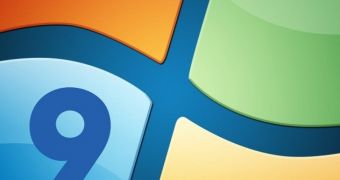Even though Microsoft is already working on a second major Windows 8.1 Update, most eyes are on the next full version of Windows, possibly called Windows 9, which could debut as soon as spring 2015.
While no confirmed details are available right now, people familiar with the matter said with several occasions that Windows 9 could focus more than ever on the cloud, with some sources even suggesting that a subscription-based version of the operating system that would be entirely based on the cloud could also see daylight.
Now Peter Lee, head of Microsoft Research, said in an interview with Digital Trends that focusing on cloud is indeed a priority for the software giant right now and although he didn't mention Windows 9 specifically, he hinted that such improvements could be part of the next Windows release.
“One of the mission-focused activities [those dictated by other divisions within the company] is centered around something called the Enterprise Graph. It sounds really boring but for us it’s really interesting,” he was quoted as saying.
The core of this cloud approach would obviously be Bing, Microsoft's very own search engine that's already powering a number of apps and services offered to customers.
“Bing tries to understand entities. When someone does a Bing search for ‘Canon 4D’ and they click the Canon Rebel link, we learn about those relationships. With enterprise there’s similar issues but with much less data. The computer science ends up being different,” the Microsoft Research head continued.
“If I write a document and I want to say, share this with the appropriate people that work with Vikram from the meeting, or say, ‘what’s trending around me at work,’ not in my personal space but at work … answering questions like that requires a very different kind of machine learning,” he added.
Windows 9 is projected to see daylight in early 2015 and could bring quite a lot of new features, including a PC version of Microsoft's new personal assistant called Cortana and already available on Windows Phone 8.1. Cortana, which is also based on Bing features, helps users perform a number of tasks, such as sending emails, calling contacts, posting on Twitter or setting up reminders, using voice commands.
As usual, since Microsoft prefers to remain completely tight-lipped on Windows 9, take all of these with a grain of salt and let's just hope that the company shares more details on the next full OS version anytime soon.

 14 DAY TRIAL //
14 DAY TRIAL //